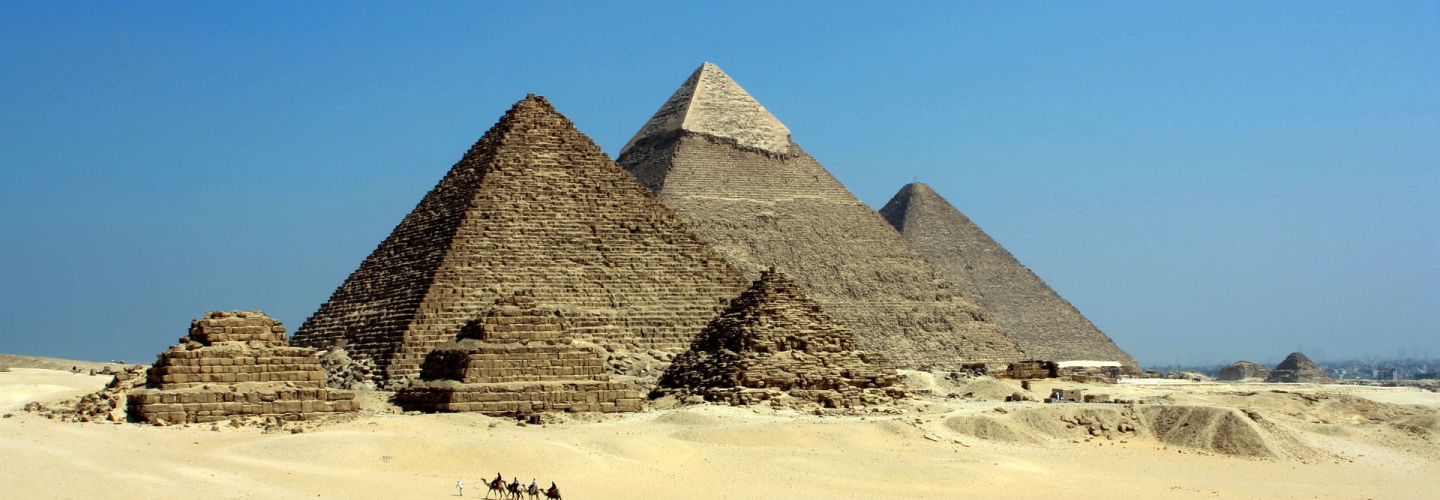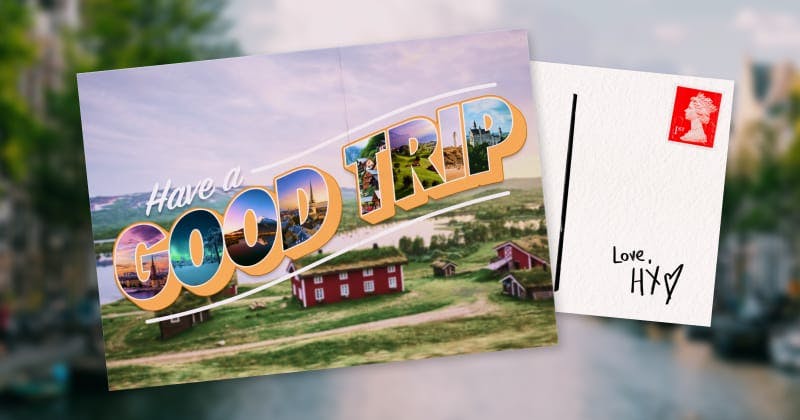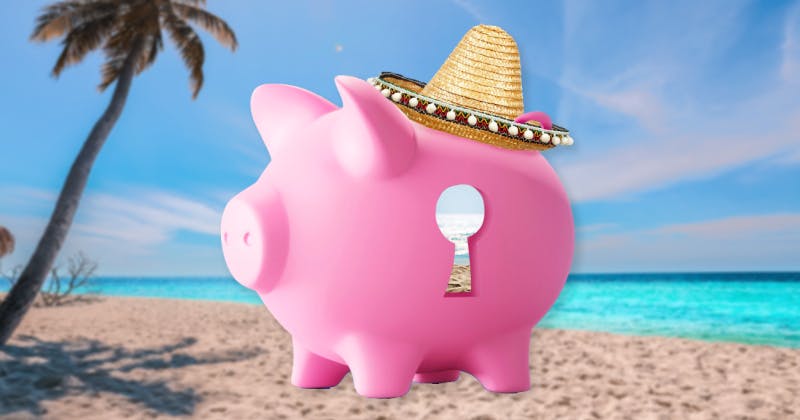
Egypt Travel Guide
History buffs and beach lovers alike will be in paradise on their trip to Egypt. Here's everything you need to know before you travel.
What you'll find in this guide:
Top things to do in Egypt
Practical Information
Egypt for LGBTQ+ travellers
Egypt for women travellers
Weather in Egypt
Getting to Egypt
Getting around Egypt
GMT +2
Egyptian pound EGP
Egyptian Arabic
Type C & F
5 hours
Practical info
Important things to know before you visit Egypt
At 178th place, Egypt ranks second last in our Good Trip Index, which is our guide to travelling ethically, sustainably and well. To help make travelling responsibly less of a hassle, we pulled together seven of the definitive country-level indices that cover the main ethical issues UK holidaymakers told us were important to them when deciding where to go on holiday, including women's rights, LGBTQI+ rights and quality of life.
Many of Egypt's laws and customs are very different to those in the UK. While tourist resorts like Sharm El-Sheikh tend to be more lenient, it's important to familiarise yourself with what is and what's not appropriate to avoid offending anyone or inadvertently breaking the law. This is especially true if you're travelling to less-touristy areas where attitudes are more conservative.

Egypt ranks 178th on the Good Trip Index
This score is calculated based on Sustainability, Human Rights, Women's Rights, Press Freedom, Quality of Life, LGBTQI+ Rights and Animal welfare
Find out more- Check your prescriptions. There is a strict, zero-tolerance drug policy and this can extend to a number of prescription medicines. Be sure to contact the embassy of the country you're visiting to see which medicines are allowed. You might need permission to bring your medication before you arrive, plus a letter from your GP confirming it's for personal use only.
- Avoid public affection. Public displays of affection, including holding hands and kissing, are considered offensive, so it's best to wait until you're back in your accommodation before snuggling up with your partner.
- Dress modestly. At the beaches and resorts it's fine to wear swimwear and shorts etc, but it's best to keep shoulders and knees covered when in public spaces. This is especially important in rural areas, mosques and souqs (markets) where attitudes are more conservative.
- Unmarried couples cohabiting is illegal in Egypt. And this applies to hotel rooms too. The law only tends to be applied to Egyptian nationals and Arabs, but it's worth being discreet so no offence is caused.
- Respect the rules of Ramadam. During the holy month of Ramadam, Muslims fast from dawn to sunset. The opening hours of shops and restaurants may be affected, and hotels and restaurants that do provide food during fasting hours may seperate you from Islamic guests with screens. It's especially important to follow local dress codes at this time, and to keep in mind that driving may be erratic – especially around dusk.
- No drinking alcohol in public spaces. It's illegal to drink alcohol in public, so make sure to keep your boozing to licensed bars and restaurants. Bear in mind that alcohol is widely considered to be banned in Islam, Egypt's predominant religion, which means drinking is often frowned upon.
- Don't take photos of people without permission. As you're snapping away, be cautious of people in your frame. Taking pictures of people, especially women and children, without permission is illegal. Taking pictures of government and military buildings is also prohibited, and snapping religious builings can lead to trouble too.
- Don't criticise the Egyptian government. You could be arrested for making political or negative comments about Egypt's government, including on social media.
- Keep an eye out for touts. It's common for touts to aggressively try to sell things to tourists at popular sights for an overinflated price. This can happen even if you're in a car or taxi. You're likely to face less difficulties if you travel as part of an organised tour.
Culture and etiquette
Religion
The majority of Egyptian people identify as Sunni Muslims, and Islam is the state religion.
Tipping
Tipping is common practice in Egypt. Many workers rely on tips, or baksheesh, to top up their wages, including hotel staff, waiters, bartenders, bus and taxi drivers, tour guides, and anyone who has helped you in some way. Around 10% to 15% is expected at restaurants and cafes (a service charge is often added), and just a small cash tip is appreciated in most other cases depending on the service.
Smoking
Smoking is banned in some public spaces, including health and educational facilities, government buildings, public transport, sports and social clubs and youth centers. Many bars, restaurants and hotels have designated smoking areas.
Jabs, visas and other advice
The FCDO currently advises against travel to certain parts of Egypt. Most tourist areas, including Sharm El-Sheikh and Cairo, are deemed safe for travel, but it's important to double check before visiting. For up-to-date advice on jabs, visas and other foreign advice, we recommend following the government’s website.
Emergency numbers
For fire call 180, police call 122 and call 123 if you need an ambulance.
Is Egypt safe for LGBTQ+ travellers?
Homosexuality is widely frowned upon in Egypt. Public displays of affection between same-sex couples – and anyone, for that matter – will likely cause unwanted attention. LGBTQ+ people have been arrested under 'debauchery' laws for flying rainbow flags and for sharing sexually explicit content on social media. To keep safe, it's important to show discretion.
We use the Spartacus Gay Travel Index to inform the LGBTQ+ rights score in our Good Trip Index. In 2023 Spartacus ranked Egypt 191st out of 199 countries, taking into account the laws and living conditions for members of the queer community in the country in question.
If you'd prefer a safer holiday to a place where you don't need to hide who you are, read about some of the top LGBTQI+ friendly destinations in the world.
Is Egypt safe for women travellers?
While Egyptians are known for being incredibly hospitable, it's common for women to be verbally harassed and cat-called by men. The best bet is usually to ignore it, but of course this is easier said than done.
A good option for women is to travel in numbers and book group tours. Travelling with other people is likely to make dealing with harrassment easier, and you'll find plenty of female tour guides who'll show you the top sights in the local area.
Physical harrassment is more likely in crowded, confined spaces like public transport. If you use public transport, try to sit next to other women and avoid rush hour – Cairo's metro service has women-only carriages. And avoid travelling alone in taxis – if you have to, use reputable services like Uber and make sure to sit in the back seat.
There's plenty to reward female travellers in Egypt, but if it's somewhere you'd prefer to avoid here are some of our favourite destinations for women.
What's the weather like in Egypt?
Summers in Egypt are hot and dry, especially in inland areas like Cairo and Luxor where temperatures often reach 40°C. Peak season is in winter, as temperatures become mild enough to explore Egypt's historic sites but warm enough to relax on its gorgeous beaches.
The shoulder seasons spring and autumn can provide the best of both worlds. Temperatures are baking but bearable, and the crowds will be much thinner than in winter – so you can explore the pyramids in relative peace. Although if you're travelling in spring you'll need to keep an eye out for sandstorms, which can disrupt travel and visibility – especially in desert regions.
Getting to Egypt
The easiest way to get to Egypt is to catch a flight. It takes around 5 hours from London to Cairo, and 5 and a half hours to Sharm El-Sheikh.
Getting around Egypt
You could hire a car, but driving conditions in Egypt are notoriously difficult. The quickest and safest way to get around the country is by plane – it takes just 45 minutes to fly from Cairo to Luxor. Just make sure to book well in advance.
Your best bet to get around Cairo is the metro. There are plenty of buses too, but the roads can make for a chaotic journey. Alexandria has buses and trams, while in Luxor you'll need to use minibuses.
Another great way to see Egypt is on a Nile river cruise. A float along the iconic River Nile will take you to some of the country's top sights, including the Great Pyramids and Sphinx, Karnak Temple and the Valley of the Kings.
























